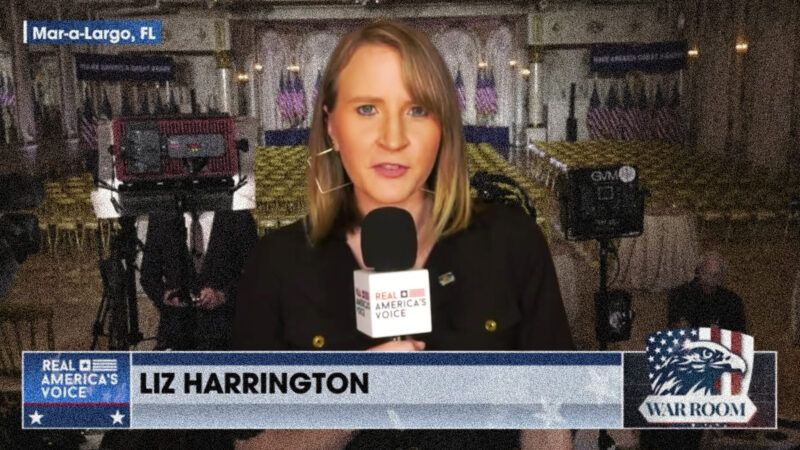No, You Don't Have a First Amendment Right To Get Your Speech Aired on Cable News
On Tuesday night, Trump spokesperson Liz Harrington made the baffling claim that, if mainstream news channels failed to air the former president's campaign announcement in full, it would mean that "we do not have the First Amendment."

It seems obvious that a cable news channel choosing not to show a lengthy speech in its entirety does not violate the First Amendment. However, Liz Harrington, a spokesperson for former President Donald Trump, hasn't seemed to have gotten the memo.
On Tuesday night, Trump announced his 2024 presidential run in an hour-long speech from his Mar-a-Lago residence. In the lead-up to the speech, Harrington appeared on right-wing news station Real America's Voice. During the discussion, host Steve Bannon asked Harrington if stations like Fox or CNN are going to "cover this live" or "still going to try to embargo" the speech or "shut him down."
"They don't want the American people to hear directly from the biggest leader of the greatest political movement in our history," Harrington replied. "So I do suspect they'll try to censor and cut away. However, the people are anxious to hear from him. So they will go right around the major networks if they do indeed cut away… because that's what you have to do now. We do not have the First Amendment, it's under attack."
That assertion is plainly incorrect. Not only is it obviously true that failing to cover a political speech in full—especially to cut away for political commentary—is a normal feature of cable news, but such a practice is also hardly in violation of the First Amendment.
"Fox News, MSNBC, CNN, and other media outlets aren't the government. They're private entities with their own First Amendment rights to decide what content to air. The true attack on the First Amendment would be taking away that freedom," Aaron Terr, the director of public advocacy at the Foundation for Individual Rights and Expression, tells Reason. "Of course, that doesn't mean people can't or shouldn't criticize what they perceive as unfair media bias. The First Amendment protects that too."
While no television news network is in danger of violating the Constitution for failing to air an uninterrupted Trump speech, Harrington's legal gibberish portends the low quality of discussions to come during Trump's third presidential campaign.
"It's important for Americans to have a correct understanding of the meaning of the First Amendment," Terr tells Reason. "And it's not helpful when people invoke it inaccurately for narrowly political or partisan ends."


Show Comments (66)